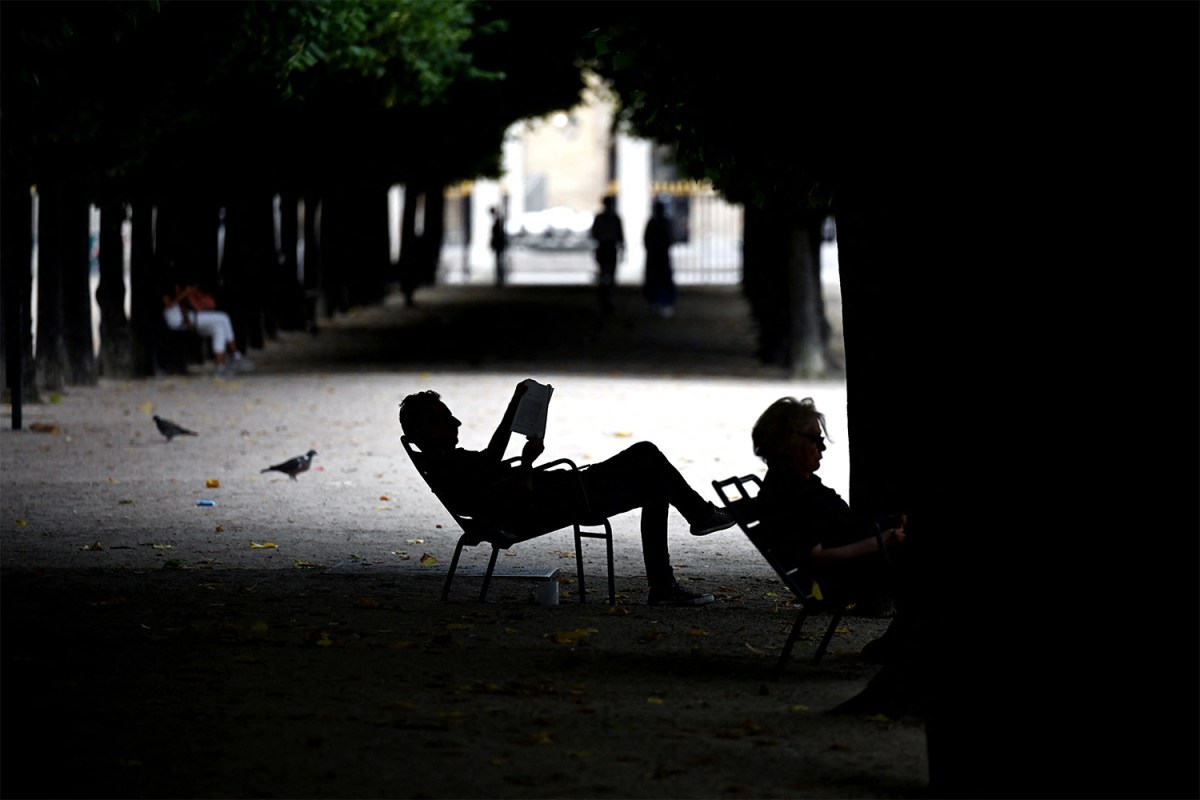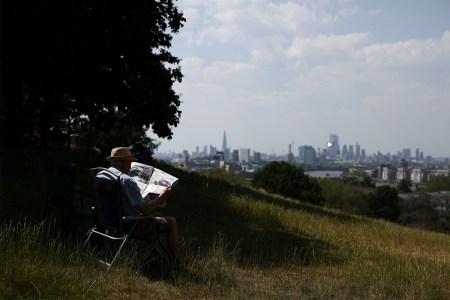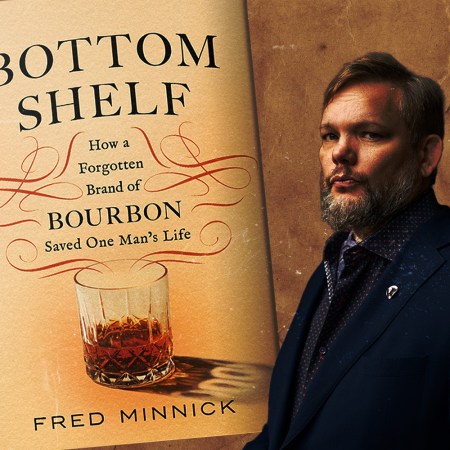American readership is dragging these days. According to a National Endowment for the Arts study published at the end of last year, only 48.5% of adults are typically reading “one book or more for pleasure” in a 12-month span. The numbers get even grimmer when isolating for fiction: just 37.6% of the survey’s participants reported reading a novel or short story from July 2021 to July 2022.
These numbers would seem to conflict with previous analyses, which describe Americans completing an average of six books or more a year, but that figure is likely carried by the country’s regular readers…who read. Goodreads is essentially a competitive sport for some adults, with users claiming yearly lists of over 100 reads.
Good for them. A dedicated reading routine is one of the best day-to-day habits you could possibly cultivate. On the mental side, it supercharges brain connectivity, boosts empathy and provides an escape from daily stressors. While physically, reading can lower heart rate and blood pressure, reduce stress hormone levels and potentially even prolong lifespan.
You don’t need to read dozens of books this year to cash in on these benefits. But you should definitely read more than one. We’ve got some ideas to help get your reading routine humming again.
Could “News Sobriety” Save Your Mental Health?
No notifications, no nothing. It’s a seductive idea, but is it ethical?Just Give Up
This is particularly relevant for people carrying an onerous read (e.g., Charlie Brown dragging around War and Peace) from last year into 2024. Just ditch it. Start fresh. If a single book has become a roadblock to you reading literally anything else, it’s not worth it. Penguin Random House, the industry’s largest publisher, releases 85,000 new books each year. There must be something out there for you, and there’s no special star for slogging through something you couldn’t stand.
We all have our reasons for keeping the same book on the nightstand for months on end, chief among them: it was a loan from a friend or family member, or it cost $20 at a bookstore. But that cost is sunk, and if you keep appeasing whatever book taste others think you have, you’re going to keep ending up in this loop. So feel free to read whatever you want. The literal act of reading can be challenging, sure, but the simple idea of sitting down to read should make you happy and relaxed.
Everything Counts
If you’re looking to rack up titles, consider expanding your definition of reading material. Look to short story volumes, plays, essays and even poetry collections. Two of my favorites from last year — both of which Goodreads counted as full “books” — were Foster, an 88-page novella by Claire Keegan, and Hangmen, a 112-page play by Martin McDonagh (the writer/director of films including The Banshees of Inisherin and Three Billboards Outside Ebbing, Missouri). I finished reading each in the span of a day. Sometimes, with lighter fare, it’s a little easier to sink your teeth into the action.
Right Before Bed
I think of this tweet often: “Cant seem to sleep. Let’s see if the bright light of my phone containing all the information in the entire world held inches away from my face for the next 15 minutes manages to lull me into a peaceful slumber.”
You could “doomscroll” and “blue-light binge” right before heading to sleep, or you could devote the final minutes of your day to reading just 10 pages of a book. Flipping pages might make your eyes super heavy, but that’s sort of the point. At the very least, it’ll present a reprieve from whatever anxieties your brain was planning on broadcasting for the night, and studies have indicated that the action could do even more.
An analysis published in 2013, brought forth by the New School for Social Research, found that reading literary fiction improves one’s “theory of mind.” It’s a psychological concept with close ties to our understanding of empathy; the theory of mind refers to one’s ability or tendency to understand that other people are different, to give them credit for their unique mental states. (i.e., You have different wants, dreams, desires, influences and intentions than I do.) That’s powerful stuff to end the day. The better you sleep, the more likely you are to stick to the habit.
Why “Brown Noise” Is an Underrated Life Hack
The cousin of white noise is a game-changer for sleep and focusCreate a Syllabus
I was an English major in college and can remember feeling apoplectic at the start of each semester as I scanned my syllabi. Hundreds upon hundreds of pages assigned each week, covering different eras and various concentrations, with essays expected for of all it. It pretty much ruined reading for me. I didn’t “pleasure read” a single book for four years.
In my adult years, though, with the benefit of some separation, I sometimes long for the structure of a syllabus, or a unit. It’s an excellent way to compare texts, to gather context, to read a writer’s most critical contemporaries. A syllabus can function as a handy focusing mechanism, too; it might help you zero in on a topic you’re broadly interested in, like surfing, monarchies or the American West.
For that last example, there’s an obvious cattle-ranching genre you could turn to. But you might select four American West-adjacent titles, pairing a classic like Lonesome Dove with other celebrated works like The House of Breath, Oak Flat: A Fight for Sacred Land in the American West and Blood and Thunder (which is nonfiction).
Pair It With a Trip
Reading a book about a place, while you’re actively visiting it, is another one of my favorite ways to revive a reading habit. Depending on what you’re reading — and what you’re doing on the trip — the experiences can complement each other in casual or mighty ways.
For instance, during a trip to Japan last June, I was reading Min Jin Lee’s Pachinko just before I visited the Hiroshima Peace Memorial Museum. In the narrative, a family of Koreans struggles to survive in World War II-era Japan. One of them dies on account of the bombings. I felt like I was able to process both the book and that day (in one of the most difficult museums to walk through on the planet) on a more profound plane, thanks to the simple timing of when I was reading the book. By another token, reading Haruki Murakami’s Men Without Women while walking Tokyo filled me with delight — he frequently mentioned apartments in neighborhoods I had walked through that very day.
Become a Regular
A few years back, there was one of those silly Twitter wars in which an initial insurgent claimed that the most pretentious of bar-goers was the person who shows up alone with a book. Bartenders quickly rallied to the defense of bar-readers, though, declaring them some of their favorite patrons: they’re quiet, predictable, kind and come through all the time. Remember that you don’t have to read your book solely in bed, or on the train, or at the beach. Feel free to make little rituals outside of the house, in a third place like a bar or a cafe, and you’ll see your read titles rise in kind.
The Charge will help you move better, think clearer and stay in the game longer. Subscribe to our wellness newsletter today.


























